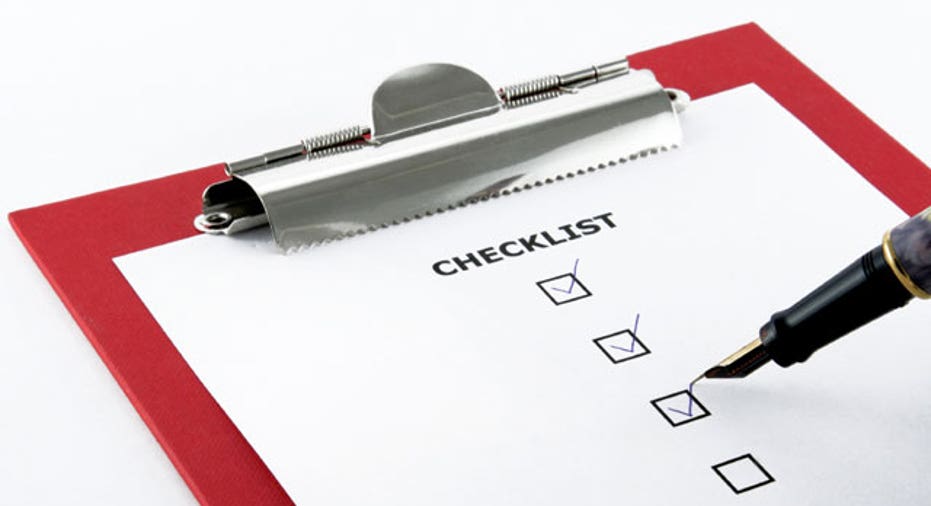Stern Advice: Forget Resolutions; Make a To-Do List

New Year's resolutions are simultaneously boring and overwhelming, aren't they? Fix your credit, make more money, stop wasting cash on lattes, blah blah blah. You've heard (and most likely pledged, and probably failed) them all before. So forget about them.
Instead of making sweeping promises, write a to-do list of financial tasks for the new year. Many of these can be completed in a few minutes, so you can tick them off in your spare time. You'll save money and they will make you feel better -- without the year-long overhang of guilt and boredom.
Here you go
* Write your financial mission statement. It should give you clear guidelines for why you're earning, saving, investing and spending. What are your financial goals? What does money mean to you? What kinds of charities do you most want to help? Just writing it down will help you implement it all year long.
* Shop your insurance. Get new quotes every year for your homeowners and auto coverage. Switch to a new company if you can save money and if it has a good consumer rating (from a company like JDPower (www.jdpower.com) and a good financial rating, from a company like A.M. Best (www.ambest.com.)
* Make a list of credit card debts. Order them by interest rate. Use that list all year long to pay down your debt. Make minimum payments on all of them, and send as much extra as you can afford every month to the one with the highest interest rate.
* Put one investment on auto-pilot. It matters less what it is than that you do it. Pick a low-fee mutual fund, and authorize it to draw a set amount from your checking account every month; even if it's just $50 or $100. You really won't miss it, and you'll build a nice emergency-vacation-college-wedding-whatever fund.
* Look at your credit reports. You can get one a year for free from each of the top three credit reporting agencies, at AnnualCreditReport.com (www.annualcreditreport.com). Get one in February, one in June, and one in October. That will keep you on top of your files all year long, to make sure no errors are creeping in.
* Reassess your credit cards. Make sure the ones you use regularly have low rates (if you're carrying a balance) or offer the best rewards (if you pay off your balance every month.) Comparison shop for a new card, but don't close your old accounts. Just use them less often.* Rebalance. If your investments have been on auto-pilot for a full year, make adjustments. That might involve some buying and selling. Or, it might just be a matter of rejiggering where your 401(k) investments go next year.
* Do some math. If you're over 40, do a preliminary retirement calculation so you have some sense of where you are headed, and whether that's where you want to be in 20 or more years. If you have young children, do a college savings calculation. The Web is replete with calculators for both tasks. Go through the exercise more than once, so you have a sense of the range of the results, because not all calculators are created equal.
* Learn one new thing about managing your money. Choose your lesson based on what you already know. Maybe it's learning how to pay your bills online. Or understanding the difference between exchange-traded funds and mutual funds. Squeeze in lessons whenever you can, and by 2012 you'll be much smarter about your money.



















